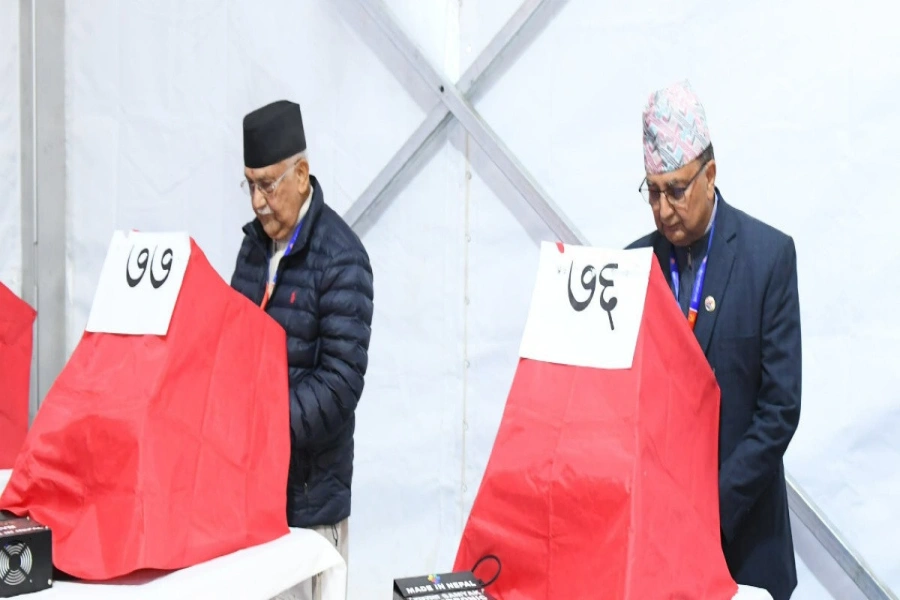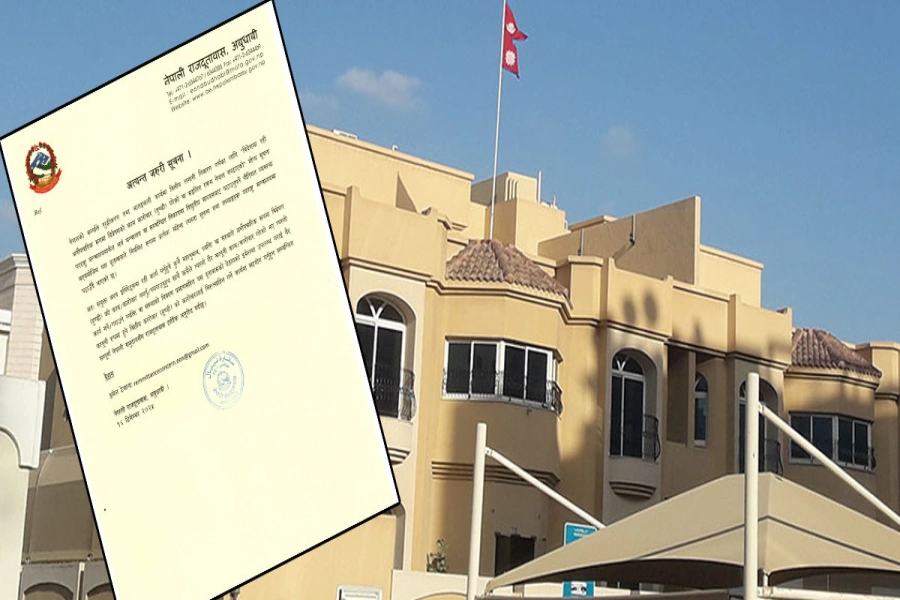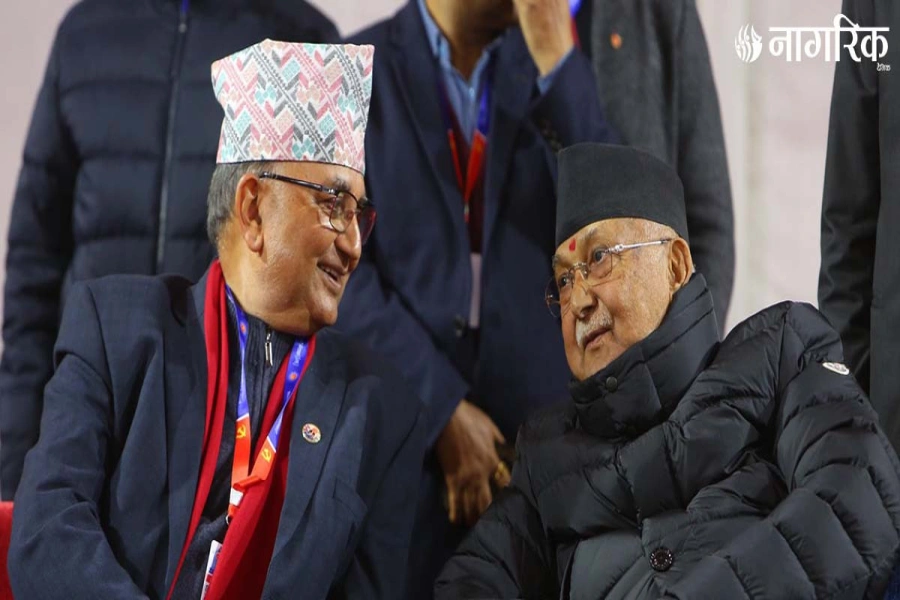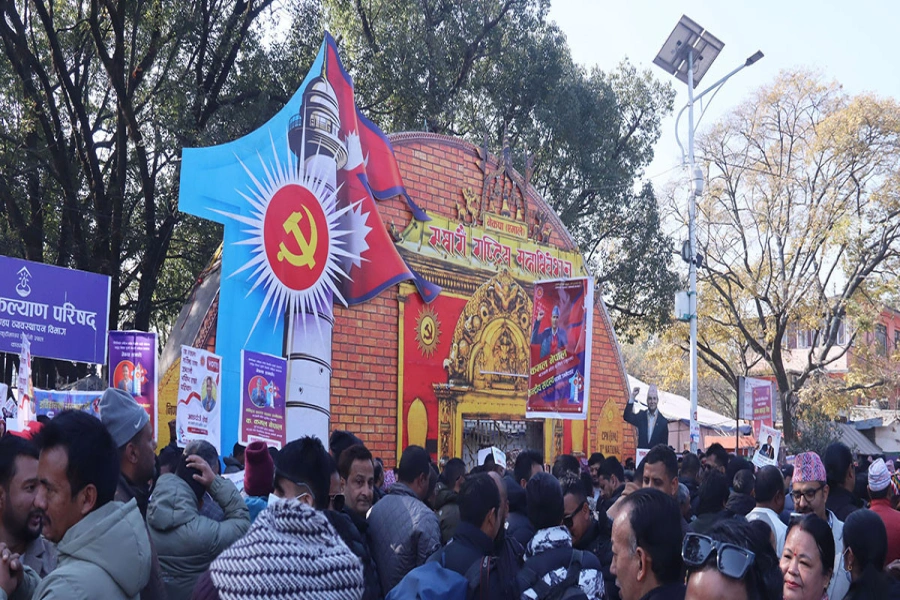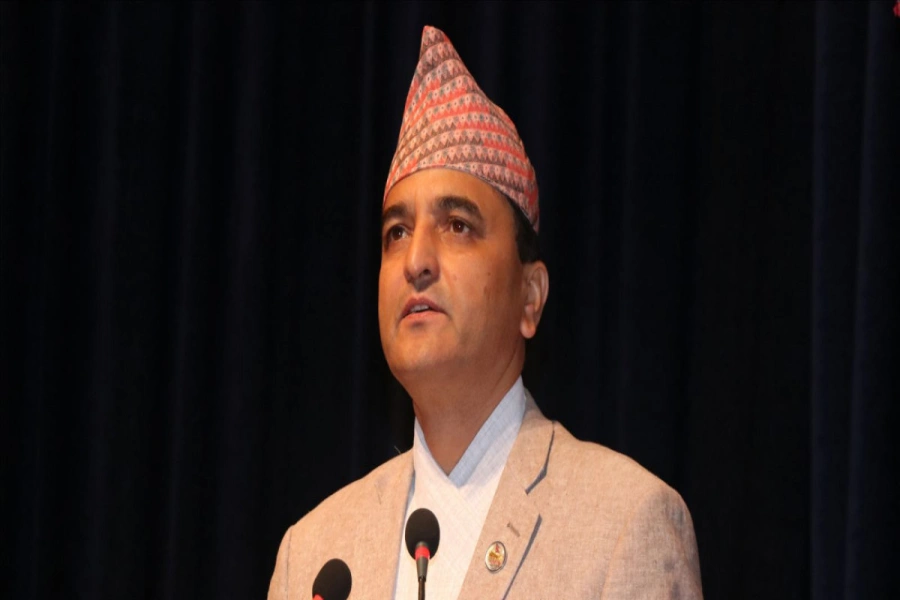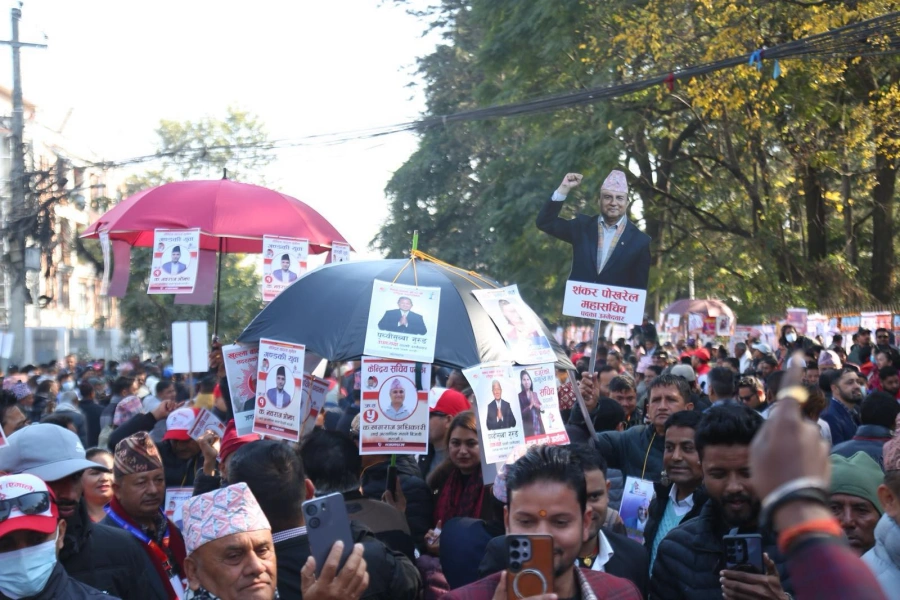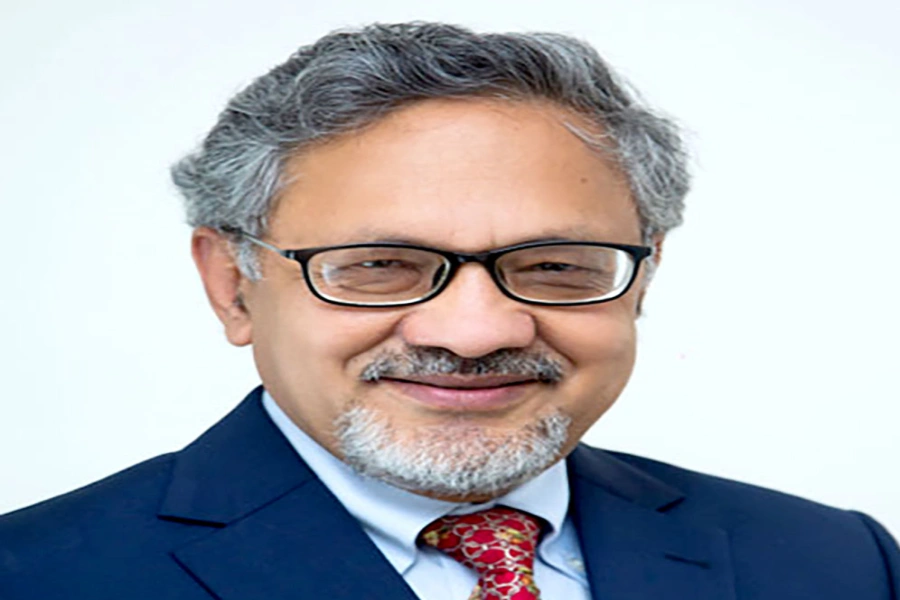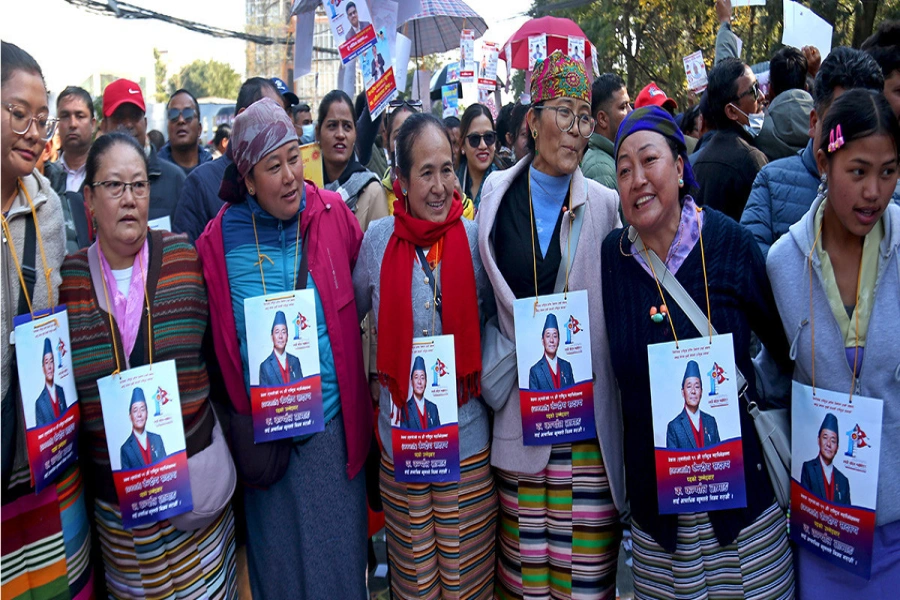KATHMANDU, April 26: Students are filled with bliss after learning that the Kathmandu Metropolitan City (KMC) has implemented a skill development program for school level students from the new academic session.
The students, who have become annoyed from rote learning, are happy that they will get an opportunity to learn theoretical education as well as other technical skills from the school level.
The KMC invited schools, teachers, parents and students at the National City Hall in Kathmandu to inform them about the program. In the same event, students studying in Grade 9 of secondary schools in the metropolis were also present. The students were delighted when they learned that after completing their school education, they will get academic knowledge as well as practical and skill-based knowledge.
“I was very worried about what I would do after completion of school level because I only memorized books by heart everyday and had no practical knowledge,” said Manisha Gurung, a Grade 9 student of Dhumbarahi Secondary School. ''After the completion of school education in 10 designated areas including agriculture and urban farming, beauty arts, hair styling, carpentry, cooking, implemented by the metropolis, at least we school students will pass out with both education and skills,” she added. Gurung further said, "I can earn by opening a parlor through beauty training."
Rabindra Rawat, another student of the same school, also expressed his happiness that he got the opportunity to gain practical knowledge on matters related to daily life. "The need to call a plumber or a mason for small tasks such as tap repairing and repairing electricity switches is no more," Rawat of Grade 9 said, "How much fun Friday will be without books. Now we are going to get life skills education at school.”
Hamro Kitab: For the book-loving society

From the academic session of 2080 BS, the KMC has started a 'short-term skill-oriented training program' up to the secondary level (Grades 9 to 12) of community schools.
Chief of the Education Department at KMC, Sitaram Koirala said that this type of program has been started to prepare manpower who can be self-employed in at least one technical field by providing useful skills for life, skill-oriented and practical education along with the theoretical knowledge obtained from textbooks.
A budget has been provided in the approved annual program of the current financial year 2079∕080 BS to conduct this type of training. “There are a total of 89 public schools in the city. Out of them, 59 are secondary and 30 are primary schools. The skill program in education has been implemented for 56 Grade 9 students this year," said Koirala. According to him, this program will be implemented from next Friday. "The city has allocated Rs 18 million for the skill development program along with theoretical education," he said.
Currently, 11 community schools are teaching technical subjects to students of Grades 9 to 12. Its main goal is to improve the educational quality by institutionalizing the learning and skills gained from such programs. In order to produce skilled manpower according to the current times, KMC has adopted a policy of making child education, basic education and secondary education more useful and professional from the 11th meeting of the Municipal Council. KMC Mayor Balendra Shah clarified that the policy has been implemented with the start of the training.
For 90 hours of training, 10 areas including agriculture and urban farming, beauty arts and hair style, carpentry and carving, and culinary arts have been selected. Fashion design and textile manufacturing, home wiring and electrical, traditional art of building construction for disaster preparedness, repairing mobile and electrical accessories, plumbing, art and sculpture will also be included in the curriculum.
Through the education provided in this way, students will be able to solve the practical problems encountered in daily life," said Mayor Shah. "On completion of the school level education, the students will receive an academic certificate along with a certificate of useful skills in life according to their interest. The goal of the program is to provide practical education for a competitive life. He added, "This will develop respect and esteem for laborers in students. Students will put into practice the knowledge they have gained from books. This way, they will put their free time to good use.”
It is said that around 20 to 30 students will be placed in one group in each training session. The program will be launched in the first year of the academic session 2080 BS. A sample program will be run for Grade 9. Deputy Mayor Sunita Dangol said that grants will be provided to schools for this program. She stated that the score obtained by the students in the three-hour exam was only momentary and emphasized that skill-based education is the basis of leading a quality life.
"Those who have passed the graduation level in the relevant subject and who have received the training from a recognized institution as a training instructor will provide training for the students," Deputy Mayor Dangol said. A person with a degree of +2 level or equivalent degrees and one year of training experience will also be accepted as a trainer. She added that the skills acquired by the students will be verified by the Council for Technical Education and Vocational Training (CTEVT).
In the case of persons who have passed graduation or acquired skills in related subjects from abroad, persons with certificates of equivalence determined by institutions recognized by the Government of Nepal, teachers working in related schools who have qualified to train in related subjects and certified from the Council for Technical Education and Vocational Training or official registered associations can also be a trainer.
When the school conducts the program, it has to publish information for vacancy and demand manpower (trainer). In this way, if qualified manpower cannot be obtained even after publication of information, the school management committee may make a decision and arrange for alternative trainers by taking a service contract with the skilled persons related to the subject or service provider organizations on a service basis.
"We will proceed by forming a committee with experts to facilitate curriculum development, monitor and inspect the program, and create different curricula according to the demand of the students and parents," said Koirala, chief of the Education Department at KMC. He further mentioned that students will get free education.
Heramba Raj Kandel, principal of Viswa Niketan Secondary School in Tripureshwor, praised the metropolis for introducing extracurricular work that will impart practical knowledge to the students from the school level.





